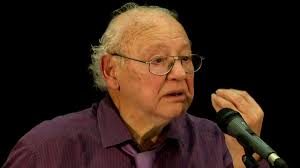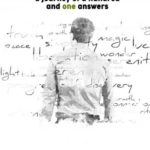For Him Art, Research, Creation And Politics Were The Same Thing – In Memory Of Paul Boccara
No Comments yetFace à l’ énorme complexité des ces questions, il es urgent d’y aller, au risque d’essuyer les plâtres, des se tromper ; car il y a une béance formidable, et un appel!
Paul Boccara ended with these words the ‘Nine Lessons of Systemic Anthroponomy’. They can be seen as legacy of a great thinker. He was born in Tunis in 1932 – he finally left us on November 26 th 2017. Although he became entirely French in his attitudes, this Mediterranean origin shaped his way of thinking in a peculiar way. I remember one of our meetings in Ivry, where he lived; we went for lunch and there was no hesitation in choosing a seat. “I’m from
Tunisia – I need light,” and so we settled right next to the window. This urge to light was guiding his life, in a metaphorical sense: it was the strive for enlightenment. This was about a very bright light, illuminating the entire socio-historical space and at the same time it was the spotlight, which made it possible to take a close look at details.
Paul Boccara was educated as economist and mastered the tiresome depths of the bourgeois profession as well as the peaks of political economics. The latter was never a flattened shortcut for complex socio-historical constellations. It was only through knowledge of complex relationalities possible to achieve a truly creative application – a Marxist approach in the best possible sense. His profound thinking was also characterised by the fact that he studied in addition to economics also history and anthropology.
Three outstanding works have to be mentioned:
The Études sur le capitalisme monopoliste d’ État, sa crise et son issue [Éditions sociales, 1973] were probably part of the compulsory reading of the left at that time. Boccara’s work was ground-breaking, but at the same time it was part of a wider discourse concerned with the changing role of the state. This has to be understood against the historical background: on the one hand, at least throughout Europe, the ‘special conditions’ of the post WWII period came to an end and the West had to settle down with a consolidating East-West relationship.
What existed as a socialist state and their coalition could not be met by capital alone – if the state would not have existed already, it would have been invented at that time to complement and consolidate the hegemonic claims of the monopoly capital. In fact, such a re-invention of the string state took place in the sense of a close, organic interweaving of economy and state.
The Théories sur les crises, la suraccumulation et la dévalorisation du capital [Delga, 2013/2015] are nearly a late work. Hardly perceived, unfortunately not translated so far, the two volumes show the misery of the economy and of economics. It is noteworthy that the current crisis is analysed in a very fundamental way as a fundamentally structural crisis. Boccara’s oevre goes beyond other works, because it makes use of the very basics of economic theory: accumulation, theory of value, production and consumption, the long waves and the differentiated consideration of predator, casino and profit of capitalist economy are analysed in principle and assessed in connection with the techno-economic processes [‘information technologies of new type’].
Neuf Leçons sur l’ anthroponomie systémique [Delga, 2017], the last book, which is the assets we inherit – and the appeal, an urgent call obliging us to concrete and detailed analysis. Importantly Boccara emphasises the role of anthroponomy – these questions occupied him intensively in recent years. This is refreshingly different from many ‘identity and value discussions’ also in the left.
Strengthening the left can barely rely on hoping for insight into the necessity of a different way of life – questions of faith and pure good will and related hopes should be left to religion. Boccara, on the other hand, puts forward a clear analysis of the interplay between politics and economy and society. And it is not an appeal for such a way of life, but rather an appeal to a culture of debate.
It is always interesting to familiarise oneself with the intermediate steps that had been leading up to these works. In the most positive sense of the word, he always understood all his writing as ‘work in progress’. Especially the readers of the journal economie et politique, the journal with which he was inseparably linked, benefited from this. A general remark should be added: Instead of chasing ranking points, many works are considered contributions to current debates and challenges, marking the real points of historical responsible academic performance.
A general note should be added: Instead of chasing ranking points, many papers have been published as contributions to current debates and challenges. And here, too, one book is outstanding – the advance that Boccara made with it was also an uproar of the French political scene: Une sécurité d’ emploi ou de formation. Pour une construction révolutionnaire de dépassement contre le chômage (Le Temps des cerises, 2002). The aim was to make alternatives to the working society again comprehensible and to put them on the agenda as a well-elaborated concept. As such it entered French politics and policies; and s such it should surely employ us when we look at the new economic developments [digitisation, new technologies etc.].
This book is an expression of the fact that theoretical work must always be as well an experiment: experiment, not least in the sense of active participation in the political struggles of the time. This found its expression in being member of the Central Committee of the French Communist Party for some time, and it also meant to be actively involved in a wide range of areas.
Finally, the theory work also meant listening – as part of a study trip I organised with students from Ireland [if I am not mistake in 2013], a meeting with Paul was scheduled in the in the headquarter of the PCF. For the students, this was a unique experience – studies of social policy gained a completely new dimension: social policy outside the seminar rooms, and at the same time the experience that communists are open to discussion. It was also an unforgettable experience for me, seeing Paul in top form: in all his explanations, answers to questions, the students were hardly aware of the extent to which they were partners and teachers at the same time: because as much as they listened, as much they reported, elaborated together ‘meaning’ in the spirit of the experiment in the sense of an awakening active participation in the political battles of the time’, in which now seminar work immediately gained a new relevance.
The left lost a great thinker and a great personality. Now we are facing the challenge of lifting the great treasure that can be found scattered as working material. Working material means two things: it is Paul Boccara’s notes and thoughts, and it is now the ideas that we don’t have to arrange in the sense of a recipe book, but rather that we take as a challenge for leftist science – if we are open to it. This openness is precisely what leads back to the sentence quoted at the beginning which is also an invitation to allow and admit mistakes. The dossier in the January issue of the Journal economie et politique contains a list of obstacles to be overcome, one of which is directed against ‘phraseology’ and the repetition of empty phrases – they have always been a thorn in his eyes. Here too, he was committed to the principle that it is better to look for real innovation than to move on supposedly safe terrain. The biggest mistake is not to move.
And, as the Nine Lessons have shown, the movement must be a movement of interdependence between politics and economy and society. Just as this unity
has shaped Paul’s life. Frédéric Boccara summed it up at the funeral in Ivry: « L’art, la recherche, la création, la politique, pour lui c’était tout un » ”For him, art, research, creation and politics were for him an entity.”
You May Also Like
Comments
Leave a Reply









